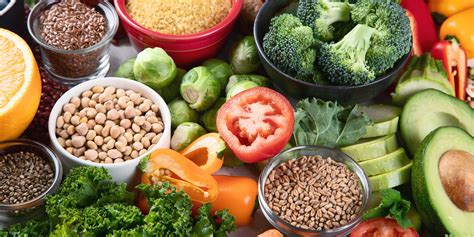Testosterone, often hailed as the cornerstone of male health, plays a pivotal role far beyond just sex drive and muscle mass. Optimal testosterone levels contribute significantly to energy, mood, cognitive function, bone density, and overall vitality. For men seeking to optimize their fitness and general well-being, understanding how to naturally support this crucial hormone is key. While synthetic options exist, a holistic approach focusing on lifestyle changes can yield sustainable and profound benefits.
Understanding Testosterone’s Impact
Before diving into strategies, it’s important to appreciate the broad influence of testosterone. Low levels, known as hypogonadism, can manifest as fatigue, decreased libido, difficulty building muscle, increased body fat, mood swings, and even cognitive fogginess. Conversely, healthy levels are associated with better cardiovascular health, enhanced strength, improved mental clarity, and a general sense of vigor. The good news is that many natural levers can be pulled to encourage your body to produce more of this vital hormone.
Lifestyle Pillars for Natural Testosterone Boost
1. Optimize Your Diet for Hormonal Health
What you eat directly impacts your hormonal balance. A diet rich in whole foods, healthy fats, and adequate protein is crucial. Avoid excessive processed foods, sugar, and unhealthy trans fats, which can disrupt endocrine function.
- Healthy Fats: Include monounsaturated and saturated fats from sources like avocados, nuts, olive oil, and organic animal products. Cholesterol is a precursor to testosterone.
- Protein: Ensure sufficient intake from lean meats, fish, eggs, and legumes to support muscle growth and recovery, which in turn can aid testosterone production.
- Micronutrients: Focus on foods rich in zinc (oysters, beef, pumpkin seeds), magnesium (leafy greens, nuts, seeds), and Vitamin D (fatty fish, fortified foods, sunlight exposure).
2. Embrace Strength Training and HIIT
Exercise is a potent stimulator of testosterone. However, not all exercise is created equal when it comes to hormonal response. Strength training and High-Intensity Interval Training (HIIT) have shown particular efficacy.
- Strength Training: Lifting heavy weights, especially compound movements like squats, deadlifts, bench presses, and rows, triggers a significant hormonal response. Aim for 3-4 sessions per week.
- HIIT: Short bursts of intense exercise followed by brief recovery periods can also elevate testosterone and growth hormone levels. Examples include sprints, burpees, or cycling intervals.

Avoid chronic, excessive endurance training, as this can sometimes have the opposite effect, leading to a decrease in testosterone due to increased cortisol levels.
3. Prioritize Quality Sleep
Sleep is when your body repairs, recovers, and produces hormones. Chronic sleep deprivation is a major disruptor of testosterone production. Studies show that even a week of restricted sleep can significantly lower testosterone levels in young, healthy men.
- Aim for 7-9 hours: Consistently get 7-9 hours of high-quality sleep per night.
- Improve Sleep Hygiene: Create a dark, cool, and quiet sleep environment. Avoid screens an hour before bed and stick to a regular sleep schedule, even on weekends.
4. Manage Stress Effectively
Stress, in its chronic form, is detrimental to testosterone. When stressed, your body produces cortisol, the primary stress hormone. High cortisol levels can directly suppress testosterone production. Finding effective ways to manage stress is therefore paramount.
- Mindfulness & Meditation: Practices like meditation, deep breathing exercises, and yoga can significantly lower cortisol levels.
- Hobbies & Relaxation: Dedicate time to activities you enjoy, whether it’s reading, spending time in nature, or engaging in creative pursuits.
- Social Connection: Maintain strong relationships with friends and family, as social support can buffer stress.

5. Get Sufficient Vitamin D and Zinc
These two micronutrients are critical for testosterone synthesis and overall male health. Many men are deficient in one or both.
- Vitamin D: Often called the ‘sunshine vitamin,’ it functions as a steroid hormone in the body. Sunlight exposure is the best natural source; aim for 15-20 minutes of unprotected sun exposure daily, when appropriate, or consider supplementation under medical guidance.
- Zinc: Involved in numerous enzymatic processes, including those related to testosterone production. Rich sources include red meat, poultry, shellfish (especially oysters), nuts, and seeds.

6. Limit Alcohol and Avoid Endocrine Disruptors
Excessive alcohol consumption can negatively impact testosterone levels. While moderate intake may be fine for some, heavy drinking is known to be detrimental. Furthermore, minimize exposure to endocrine-disrupting chemicals found in plastics (BPA), certain pesticides, and personal care products (phthalates, parabens), which can interfere with hormone function.
7. Consider Adaptogenic Herbs (with caution)
Some herbs have been studied for their potential to support testosterone or reduce factors that suppress it, like stress. Always consult a healthcare professional before adding supplements to your regimen.
- Ashwagandha: An adaptogenic herb that has shown promise in reducing stress (cortisol) and improving testosterone levels in some studies.
- Fenugreek: Some research suggests it may help increase free and total testosterone levels.

The Holistic Approach to Vitality
Boosting testosterone naturally isn’t about finding a single magic bullet; it’s about adopting a comprehensive lifestyle that supports overall health and hormonal balance. Each of these pillars – diet, exercise, sleep, and stress management – is interconnected and contributes to a robust internal environment where your body can thrive and produce hormones optimally. By consistently integrating these practices, men can experience not just an uptick in testosterone, but a profound improvement in their fitness, energy, mood, and overall quality of life.
Conclusion
Taking proactive steps to naturally boost your testosterone levels is a powerful investment in your long-term health and vitality. It’s a journey of consistent effort and mindful choices that extends far beyond the gym, touching every aspect of your well-being. Embrace these natural strategies, listen to your body, and consult with healthcare professionals to ensure the best path for your unique needs. The reward is a more energetic, focused, and vital you.





